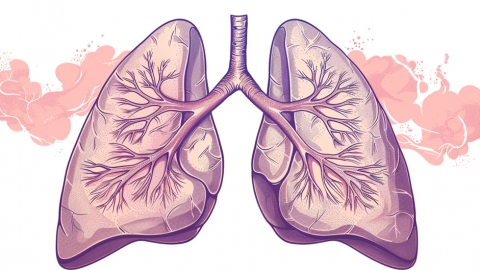How to improve poor lung function
Generally, poor lung function can be improved through dietary adjustments, exercise, lifestyle improvements, emotional regulation, and traditional Chinese medicine (TCM) therapies. A detailed explanation is as follows:

1. Dietary Adjustments: Daily meals should focus on balanced nutrition. Consume more fresh fruits and vegetables rich in vitamins, such as oranges and spinach, to supplement vitamin C and vitamin E, enhancing the lungs' antioxidant capacity. Increase protein intake moderately by choosing high-quality sources like lean meat, fish, and legumes to aid in repairing lung tissue. Reduce spicy and greasy foods to avoid irritating the respiratory tract. Additionally, consume lung-nourishing ingredients such as lily bulbs and tremella to assist in improving lung function.
2. Exercise: Aerobic exercises can strengthen lung function. For example, consistent jogging improves lung capacity and strengthens respiratory muscles. Swimming, under the pressure of water, effectively enhances breathing depth and efficiency. Tai Chi, with its gentle movements coordinated with breathing techniques, helps regulate respiration and improve pulmonary ventilation capacity. Combining various forms of exercise yields better results for lung function recovery.
3. Lifestyle Improvements: Maintain good indoor air circulation by regularly opening windows for ventilation and using air purifiers to reduce harmful indoor particles. Quit smoking and avoid secondhand smoke to prevent ongoing damage to the lungs from tobacco. Dress appropriately according to weather conditions to stay warm and prevent respiratory infections, thereby reducing the risk of worsening lung diseases.
4. Emotional Regulation: Prolonged negative emotions can affect bodily functions, including lung health. Practices such as meditation can relax the mind and body, eliminate distracting thoughts, and stabilize breathing patterns. Listening to calming music can relieve anxiety and tension by diverting attention. Cultivating hobbies like painting or calligraphy enriches life and helps maintain a positive mood, which benefits lung health.
5. Traditional Chinese Medicine (TCM): Based on individual body constitution, TCM remedies can be selected under the guidance of a qualified physician. For example, Astragalus (Huangqi) has the effect of invigorating Qi and strengthening the body's defenses, which enhances immunity and reduces the likelihood of lung infections. Sichuan Fritillary Bulb (Chuanbeimu) clears heat, moistens the lungs, and helps relieve coughing and phlegm symptoms. Sand参 (Shashen) nourishes Yin and clears the lungs, making it suitable for individuals with lung Yin deficiency. Targeted TCM调理 can effectively improve lung function.
In daily life, it's important to incorporate these methods into your routine. Maintain regular作息 habits, undergo periodic lung function tests to monitor lung health, seek medical attention promptly if issues arise, and consistently follow scientific approaches to调理. Only through sustained efforts can lung function be effectively improved and lung health safeguarded.







